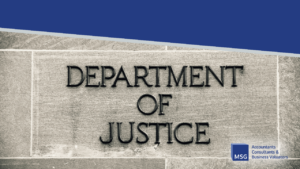A simple Google search for “PPP fraud” will bring you to hundreds of local news stories of recently indicted individuals and business owners alike defrauding the COVID-era Paycheck Protection Program. Nearly four years later, authorities have investigated 1,644 cases of tax and money laundering related to CARES Act fraud, with potential losses estimated at $8.9 billion.
The Coronavirus Aid, Relief, and Economic Security (CARES) Act, signed into law on March 29, 2020, provided over $2 trillion in economic relief to help Americans navigate the financial challenges brought on by the COVID-19 pandemic. The CARES Act initially authorized up to $349 billion in forgivable loans to small businesses through the Paycheck Protection Program (PPP), with Congress later approving an additional $321 billion in PPP funding. In addition to the PPP, the CARES Act authorized various other relief programs, including the:
- Economic Injury Disaster Loan (EIDL)
- Economic Impact Payments (EIP)
- Provider Relief Fund (PRF)
- Pandemic Unemployment Assistance (PUA)
- Federal Pandemic Unemployment Compensation (FPUC)
As the United States continues to grapple with the aftermath of the COVID-19 pandemic and its economic relief efforts, President Biden signed two bills into law that provide the Department of Justice and other federal agencies with more time to investigate and prosecute fraud charges related to these COVID-relief programs. These bills extend the statute of limitations for PPP and EIDL fraud charges to ten years.
In the coming months, we may see the passing of the Fraud Prevention & Recovery Act, introduced by Senator Gary Peters (MI) in April. The act aims to allocate additional funds to inspector general offices of several agencies and other programs tasked with detecting fraud in pandemic relief programs, recovering misappropriated funds, and prosecuting those responsible for fraudulent activities.
Only about 15% of estimated fraudulently obtained funds have been recovered as of yet. In the coming months, we will see if this multi-agency fraud-busting initiative continues to recover these funds, and how much funding will be allocated to continue this effort.
On another note, make sure to take a look through our brand-new brochure to review our updated services.


